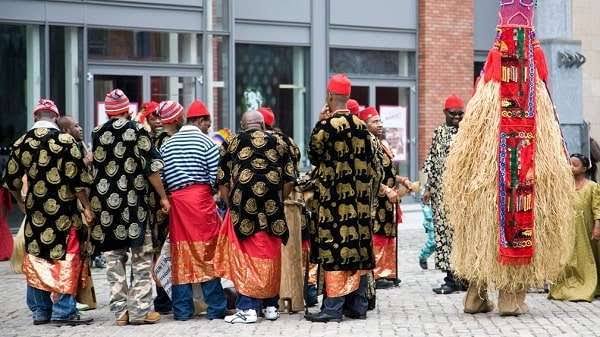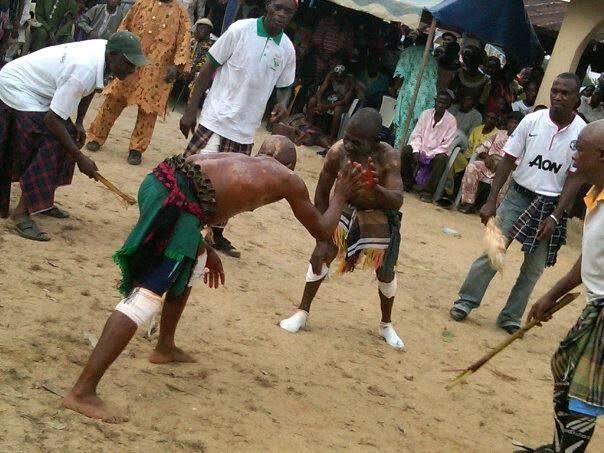Special Features
Interesting facts the Ikwerre People of Rivers State

In this article, News360 Nigeria delves into the diverse aspects of the Ikwerre tribe in Nigeria.
The Ikwerre ethnic group is one of the largest ethnic group in Nigeria, specifically located in the Niger Delta region of the country with a population of about two million people.
Their distinctive culture is heavily influenced by their traditional beliefs and customs, and they are primarily engaged in oil mining activities.
There are a number of significant oil fields in this region, including one of Africa’s biggest petrochemical complexes, Eleme Petrochemical Company.
The Ikwerre people’s economy has benefited greatly from the oil industry, which creates jobs and stimulates regional economic growth.
History
The Ikwerre people are believed to have migrated from the Igbo-speaking areas of southeastern Nigeria.
They are part of the larger Igbo ethnic group and share some cultural and linguistic similarities with the Igbo people.
During the Biafran War, Igbo people from other parts of Igboland fled Port Harcourt, and the Ikwerre made the convenient decision to declare their non-Igbo identity.
The Nigerian Constitution of 1979 explicitly recognizes the Ikwerre as a distinct group.
A portion of the Ikwerre population relocated from Ngwa, Arochukwu, and Ohaji/Egbema, while others came from Ika, an Igbo subgroup in Delta State and Edo state. Iwhuruọha is another name for the Ikwerre people.
Elele, Isiokpo, Rumuji, Emohua, Choba, Aluu, Igwuruta, and Obio are among the seven groups of Ikwerre known as “Ikwerre Essa” according to traditional history.
Forde and Jones’ ethnographic study of the Igbo-speaking peoples of South Eastern Nigeria recognized this classification.
Language
The Ikwerre people speak the Ikwerre language, which is a dialect of the Igbos.
More than two million people in Nigeria speak this language, and they have a rich tradition of proverbs that are particularly popular among the elders to counsel and warn the younger generation.
Location
The Ikwerre people are found in Rivers State, Nigeria; they are primarily concentrated in the local government areas of Emojis, Obio-Akpor, Port Harcourt, and Ikwerre.
The Ikwerre cultural area is bounded to the northwest by the Ogba, the Etche to the east, the Eleme and Oyigbo to the southeast, the Ojoid groups of Degema, the Kalabari and Okrika to the south, and the Etche to the east.
The Ikwerre tribe is composed of four main clans: the Elele group (Ishimbam), the Igwuruta-Aluu (Ishiali) group, the Rumuji-Emohua-Ogbakiri (REO) or Risimini group, and the OPA group (Obio/Port Harcourt/Akpor).
Occupation
Historically, the Ikwerre people were predominantly farmers and fishermen.
However, in modern times, many have also taken up various professions including business, education, government service, and other forms of employment.
Beliefs
The Ikwerre people combine Christian doctrine with customary beliefs.
Reverence for ancestors, spirits, and natural forces is a common feature of traditional beliefs.
They believe in a supreme being called Ndichie, who created the universe and is in charge of ensuring the well-being of all living creatures.
They also hold the belief that traditional gods are in charge of particular facets of life, like prosperity, protection, and fertility.
Some gods and spirits are in charge of various facets of life, such as Ojukwu Diobu, the god of war and protection, and Amadioha, the god of justice and thunder.
The Ikwerre traditional religion places a lot of emphasis on ancestor worship. It is thought that the spirits of departed ancestors have a profound impact on the lives of the living.
To honor and converse with the ancestors, libations, rituals, and sacrifices are offered.
Many Ikwerre people have embraced Christianity’s practices and doctrines while clinging to their own beliefs and traditions.
As a result, the Ikwerre tribe now practices a distinctive fusion of traditional and religious customs.
Culture and Traditions
Ikwerre people have a rich cultural heritage that includes traditional music, dance, and art.
They have traditional festivals and ceremonies that are important to their cultural identity.
Like many other Nigerian ethnic groups, the Ikwerre have a strong emphasis on family and community values.
Just like every other ethnic group,the Ikwerre people have ceremonies and festivals which shows the uniqueness of their culture.
Their people are brought together and their cultural heritage is promoted by these celebrations. New Yam festival, also called “Iri-ji” or “Iri-ji-mmuo,” is one of these well-known celebrations.

Ikwerre chiefs celebrating the new yam festival
This mid-year celebration honors the abundant harvest and signals the conclusion of the farming season, when farmers unwind and savor the produce of their labor.
During this festivals, sacrifices,are made, libations are poured to placate the gods or deities of the land for a fruitful farming season.
In Ikwerre land, new yams can be consumed after the festival, as it is considered improper to eat them before.
Another important festival in Ikwerre land is wrestling competition.

Ikwerre wrestlers in a contest
Drums of various kinds, sizes, and shapes, including Ikwiriku, Ekwenkalu, Ngele, and Mbamba, are used in this competition.
Dressing
Traditional Ikwerre attire includes colorful fabrics often worn in the form of wrappers for both men and women.
Modern clothing styles are also prevalent among the Ikwerre people.
Food
The Ikwerre people have a diet that includes a variety of locally grown foods such as yams, cassava, plantains, and various vegetables.
Fish and other seafood are also important parts of their diet due to their proximity to rivers and the coast.
The Ikwerre people are known for their specialties, which include oha soup, okpotoro and okasi soup, vegetable soup, periwinkle soup, and others.
Periwinkles, also known as “isam” in the Ikwerre native dialect are important parts of their dishes.
Marriage
Traditional marriage ceremonies include asking the woman for her hand in marriage, paying the bride’s price, and participating in the customary engagement ceremony.
The bride price, also known as “Iku Akwukwo,” is a token of appreciation and respect given to the woman’s family.
Usually, the payment is made in cash or with other precious gifts, such as goats or cows.
The traditional wedding is always lavish, and the traditional clothes are typically exquisite.
Men wear matching hats and a loose-end wrapper over their etibo, or flowing shirt.
Men’s clothing is completed with a hand staff or walking stick, while women wear wrappers and traditional tops.
An integral component of women’s clothing are beads. It is worn around the wrists, neck, and head.

An Ikwerre bride
Notable Ikwerre People
Some prominent people in Nigeria which belong to the Ikwerre tribe are;
Nyesom Wike, a former governor of Rivers State and present Minister of the Federal capital territory, Duncan Mighty, a musician, Celestine Omehia, a politician; Obi Wali, a rights activist; Mercy Chinwo, a gospel singer; and Elechi Amadi, a writer.
























